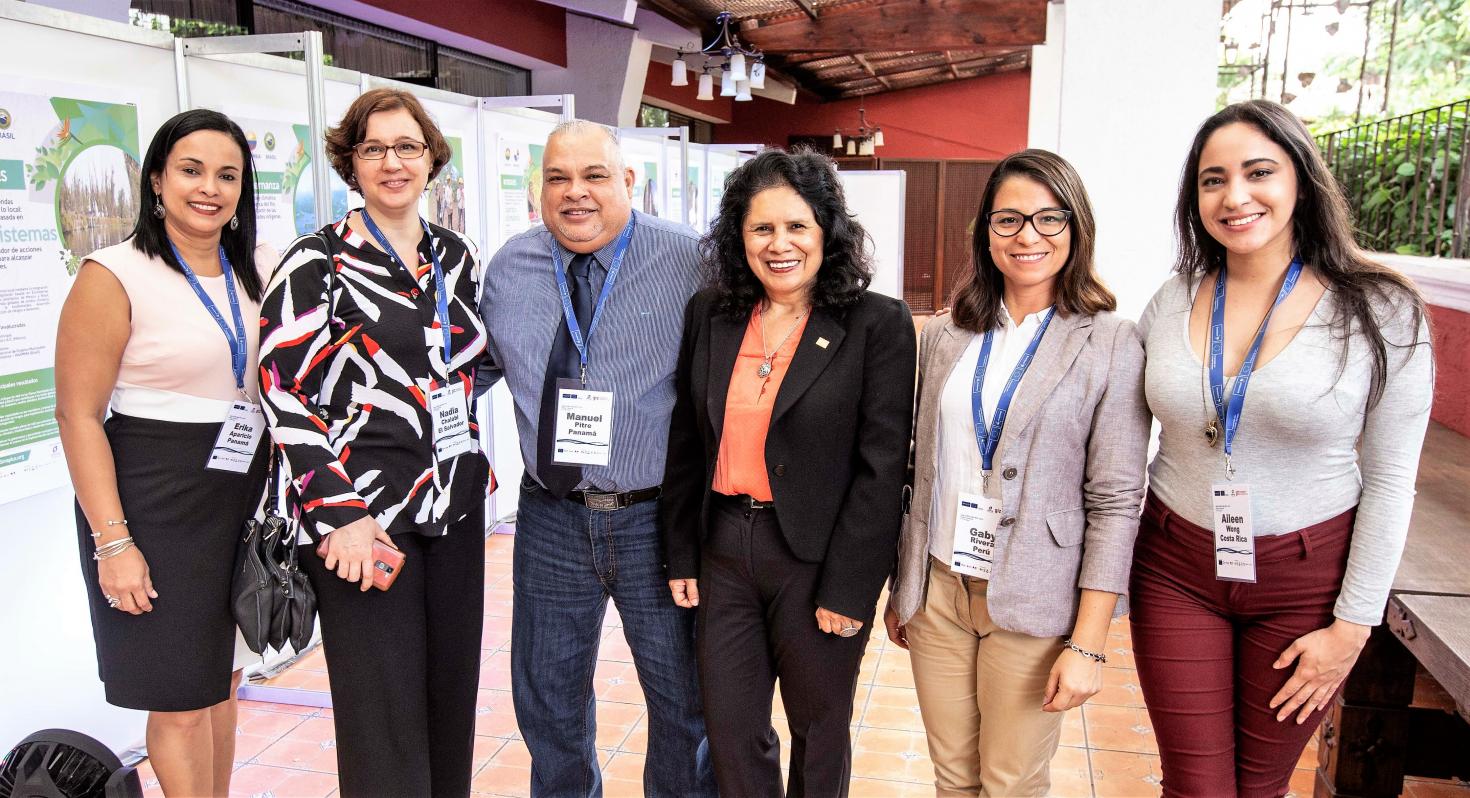IICA is participating in two projects—funded by the Resilient Food Production Component of the EU’s EUROCLIMA+ Program—which seek to enhance the resilience of agriculture to climate change in various Latin American countries.

Antigua, Guatemala, 30 May 2019 (IICA). Representatives of both projects participated in a regional workshop on resilient food production that was recently held in Antigua, Guatemala. The projects will be implemented solely or partially by the Inter-American Institute for Cooperation on Agriculture (IICA) and are funded by the European Union’s EUROCLIMA+ Program.
The two projects in question are “Support for the Formulation of Appropriate Mitigation Actions in Central American Agriculture,” which will be executed by IICA El Salvador and IICA Panama, in conjunction with Panama’s Ministry of Agricultural Development (MIDA); and “Biodiversity and Best Climate-smart Agricultural Practices to Improve the Resilience and Productivity of Family Agriculture in Andean Potato-based Food Systems,” which will be implemented by the International Potato Center (CIP), in partnership with IICA Peru.
IICA specialists Manuel Pitre, from the Panama Office; Nadia Chalabi, from El Salvador; Gaby Rivera, from Peru; as well as Aileen Wong, from the Project Management Unit at the Institute’s Headquarters, attended the Regional Food Production Resilience Workshop, which was organized by EUROCLIMA+ in Guatemala. Also in attendance were technical specialists from other projects financed by this European initiative in Latin America.
Alfonso Alonzo, Guatemala’s Minister of the Environment and Natural Resources; and Beatrice Bussi, Deputy Head of Cooperation of the European Union Delegation in that country, among other dignitaries, were present at the opening ceremony of the event.
Alonzo explained that, “Talking about resilient foods is a complex national security issue in our countries. Land is becoming less available and demand is rising; and for this reason we must look for creative models with the resilient food production projects, so that their results may have a positive impact.”
Resilient Food Production (RFP) is one of the components of the EUROCLIMA+ Program and is jointly implemented by the cooperation agencies GIZ and Expertise France. Its purpose is to strengthen local, national and regional capacities to increase resilience to climate change, the efficiency of agricultural and livestock production systems with respect to carbon and water, as well as food value chains, according to sectoral commitments under the framework of the implementation of the nationally determined contributions (NDC).
The regional workshop involved government officials from the EUROCLIMA+ partner countries, as well as representatives from the projects’ implementing agencies and other related organizations. The four-day event sought to encourage the 18 partner countries to exchange lessons learned and best practices for the implementation of NDCs in the RFP sector.
IICA Projects
The Support for the Formulation of Appropriate Mitigation Actions in Central American Agriculture project aims to strengthen regional and national capacities to achieve public-private appropriation and consensus on the achievement of mitigation goals in Panama (rice) and El Salvador (cattle), catalyzing mitigation and cooperation actions among Central American countries towards low carbon development.
On the other hand, the Biodiversity and Best Climate-smart Agricultural Practices to Improve the Resilience and Productivity of Family Agriculture in Andean Potato-based Food Systems project seeks to improve the adaptive capacity of farmers and public and private actors linked to Andean potato-based agrifood systems in Peru, Bolivia and Ecuador, through the development, application and dissemination of best climate-smart agriculture practices, as well as articulation with differentiated markets.
More information:
Institutional Communication Division
comunicacion.institucional@iica.int











